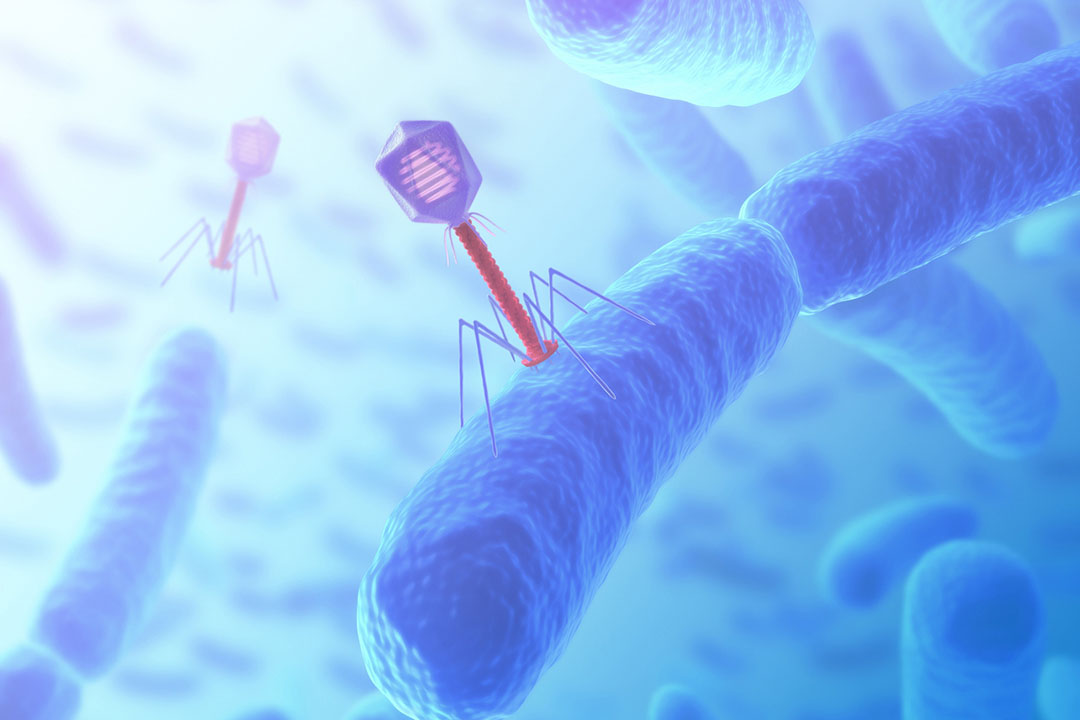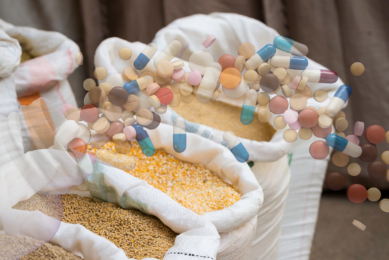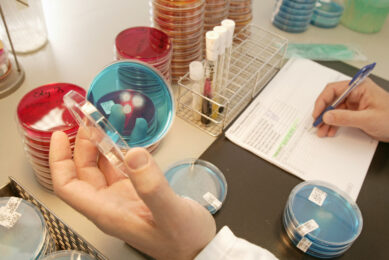Bacteriophages: A post-antibiotic solution

The post-antibiotic era has given rise to new products that kill harmful bacteria, one of them being bacteriophages. Matthew Tebeau of Proteon Pharmaceuticals explains how bacteriophages work and which products have been developed to support the livestock industry in transition.
Antibiotic resistance is one of the biggest public health challenges of our time. According to a comprehensive report published by the Centers for Disease Control and Prevention (CDC) in 2013, at least 2 million people get an antibiotic-resistant infection each year in the United States alone. Of those, at least 23,000 die. This resistance, which happens when bacteria and fungi build immunity to the drugs designed to kill them, has raised concerns worldwide. In an effort to protect human health, livestock producers around the world have reduced and are working to eliminate the unnecessary use of antibiotics in animals.

Matthew Tebeau of Proteon Pharmaceuticals
Proteon Pharmaceuticals is a biotechnology company based in Poland where Professor Jarosław Dastych founded the company. Under his guidance, the company has developed two key bacteriophages products, thanks in part to a substantial team of scientists. When the company was first established in 2008, Dastych’s vision was to reduce or eliminate the need for antibiotics in animal health using bacteriophages. “We have then really looked at and targeted our products to help solve an animal or livestock farming challenge wherever there is the use of antibiotics as a major prophylactic or where there’s significant antibiotic resistance,” said Matthew Tebeau, chief operating officer at Proteon Pharmaceuticals. Today, Proteon has two commercially available products. The first, Bafasl, is a poultry feed additive that prevents Salmonella infections. The second, Bafador, is used in aquaculture to control some of the most common pathogens that impact fish growth and health.
Bacteriophages are not a panacea… They are part of a well-considered plan for preventing disease.” – Matthew Tebeau.
Eliminating risks from salmonella
The salmonella product for broilers, if used regularly as a feed additive and added to drinking water, the animals will not develop Salmonella, said Tebeau. “Our product focuses on the most common forms of human pathogenic Salmonella, like Enteritidis and Typhimurium, and the result is that you improve food safety, reduce the risk in developed markets at processing because you have eliminated most Salmonella prior to processing,” said Tebeau. “We found that eliminating Salmonella which at a subclinical level can impact overall animal health – can improve performance in broilers, layers and in breeder flocks. In developed markets, the food safety aspect is extremely important, and has been an ongoing problem for producers,” he added.
“You could use it as a replacement for certain antibiotics and you can also use it either separately or in place of probiotics or acidifiers. So it really has a place as a new category in the production process. In emerging markets, the impact on performance is quite a bit higher,” said Tebeau. In countries where there tends to be an overuse of antibiotics, the level of antibiotic resistance and the general level of disease is higher and you can really make a difference by eliminating the pathogen and improving health.
How bacteriophages work
Bacteriophages are an intriguing new category of pharmaceuticals. They directly kill bacteria. They are evolutionarily evolved, highly specialised viruses that target bacteria. Basically, they attach themselves to the bacteria, insert their RNA, and replicate inside the bacteria, eventually breaking the cell wall of the bacteria and then amplify in the environment. “So one bacteriophage attaches to one bacteria, inserts its RNA, reproduces and the bacteria explodes from the inside, and 50 bacteriophages suddenly emerge looking for those same bacteria,” explained Tebeau. “So they overwhelm the bacteria in the environment.”
Unlike vaccines, they’re not focused on the immune system. Unlike antibiotics they do not leave a residue behind. And they’re not like probiotics, which impact the bacterial environment indirectly. Bacteriophages directly impact bacteria. They are natural controllers of bacteria, and they’re everywhere. “What we do is we identify a cocktail – in the case of Bafasal, 4 phages, which we produce and deliver in a concentrated form to the animal via the drinking water,” explained Tebeau. “We can also deliver the product in a dry feed.”
There are many causes of mastitis, but Staph and E. coli tend to be very difficult to remediate and cause substantial milk loss or antibiotic resistance,” – Matthew Tebeau.
“In order to figure out that a phage is effective, you need to fully understand the DNA of the bacteriophage, you need to understand how it operates at a microbiological level, and you need to design or select phages so that they work well or complementary together to target the bacteria that you want,” he continued. “They operate in a very narrow way, so they don’t kill all bacteria, but just the species that you’re targeting.” This last point means that bacteriophages do not have side effects. To be clear, bacteriophages are not a panacea, said Tebeau. They are part of a well-considered plan for preventing disease.
More products in the pipeline
Proteon has several more products in the pipeline. One works to prevent or eliminate avian pathogenic E. coli in poultry. Another product, targeted for release next year, works to prevent mastitis caused by Staphylococcus aureus and E. coli bacteria in dairy cows. “There are many causes of mastitis, but Staph and E. coli tend to be very difficult to remediate and cause substantial milk loss or antibiotic resistance,” said Tebeau. They’ve also made significant progress on a product that prevents Campylobacter in poultry, and are working on another product that prevents Salmonella and E. coli in young pigs.
Proteon has been able to develop such a wide range of products using a platform of technology they’ve developed that allows them to identify a disease, find phages – all of their phages are natural – and develop a product. Each product is a cocktail of bacteriophages that solve the particular problem. The resulting products were developed as alternatives to existing products. Proteon Pharmaceutical bacteriophages were initially launched in Southeast Asia and then in Europe. They will be available in North America sometime next year.







